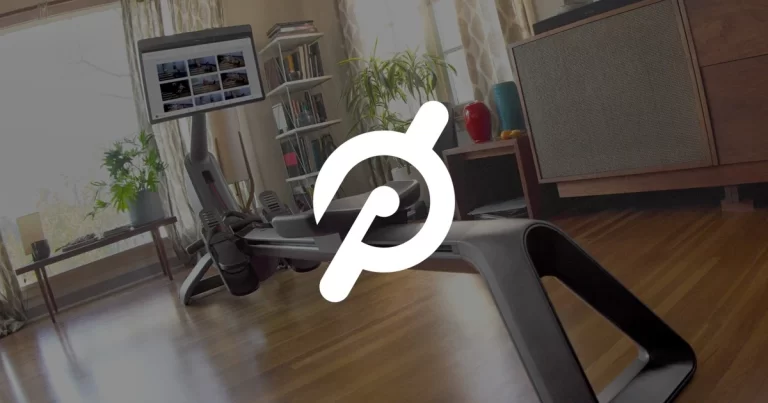Introduction
OYO Rooms has emerged as a revolutionary force in the budget hospitality sector, creating affordable lodging options for millions of travelers. Founded in 2013, OYO’s innovative approach to franchising hotels and leasing properties has enabled the company to bridge the gap between fragmented budget hotel owners and budget-conscious travelers. This case study provides an in-depth analysis of OYO’s business model, competitive landscape, franchising strategies, outcomes, and lessons learned.
OYO’s Business Model: A Technological and Operational Revolution
OYO’s success in the budget hospitality sector is rooted in its hybrid business model, which incorporates franchising, leasing, and technology integration. This approach enables OYO to partner with small-scale hotel owners while ensuring high operational standards and delivering consistent value to travelers seeking affordable yet reliable accommodations.
Franchising and Leasing
OYO collaborates with hotel owners by offering franchise or leasing agreements. Through franchising, owners retain property ownership while OYO rebrands and manages operations. Leasing involves OYO taking full operational control of the property. Both models are aimed at standardizing services and maximizing profitability, making them highly effective in the budget hospitality space.
Technology Integration
Technology is at the core of OYO’s budget hospitality operations. The company uses proprietary tools to optimize room pricing, manage bookings, and track property performance. Features like AI-driven dynamic pricing and real-time inventory management ensure efficiency and profitability while catering to the cost-sensitive demands of budget travelers.
Standardization
OYO standardizes the customer experience across all budget hospitality properties. This includes uniform room designs, consistent amenities, and strict service quality protocols. Standardization builds customer trust and ensures repeat bookings, which are critical for success in the competitive budget hospitality industry.
Branding and Marketing
OYO’s global marketing efforts amplify its brand presence in the budget hospitality segment. Its partnerships with platforms like Booking.com and Airbnb enhance visibility, while targeted digital campaigns attract travelers looking for affordable stays. This strategic branding approach has helped OYO establish itself as a global leader in budget hospitality.
Franchising Strategy: The Core of OYO’s Growth
OYO’s franchising model is central to its ability to scale rapidly in the budget hospitality sector. This strategy empowers small and mid-scale hotel owners while maintaining high operational standards and ensuring consistency across its network of properties. By focusing on standardization and scalability, OYO has become a prominent player in the budget hospitality market.
Highlights of OYO’s Franchise Model
- Low-Cost Entry: OYO minimizes the capital requirements for franchisees, making it accessible for small property owners.
- Comprehensive Support: From staff training to supply chain optimization, OYO ensures franchisees are well-equipped to meet customer expectations.
- Revenue Sharing: Franchisees and OYO split revenue based on predefined agreements, ensuring mutual profitability.
- Technology Assistance: AI-driven tools for dynamic pricing and real-time inventory management help maximize occupancy and revenue.
Challenges in Franchising
- Resistance from Traditional Owners: Many property owners hesitate to adopt standardized practices.
- Regulatory Issues: Navigating different compliance requirements across regions can delay operations.
- Quality Maintenance: Ensuring consistent service across a large network is a persistent challenge.
The Impact of OYO’s Model
OYO’s hybrid franchising and leasing model has delivered significant outcomes for travelers, franchisees, and the budget hospitality industry as a whole. By combining technology, operational efficiency, and global branding, OYO has redefined the standards of budget hospitality, creating value for all stakeholders involved.
For Travelers
- Affordable Stays: Travelers benefit from competitively priced accommodations without compromising on quality.
- Ease of Booking: OYO’s app and website make the booking process seamless and user-friendly.
- Wide Availability: Properties are available in major cities as well as remote locations, catering to diverse travel needs.
For Franchise Owners
- Higher Occupancy Rates: Enhanced visibility and dynamic pricing ensure steady bookings.
- Improved Margins: Cost optimization and operational support boost profitability.
- Global Visibility: Franchisees gain access to OYO’s global network and marketing platforms.
For the Hospitality Industry
- Market Consolidation: OYO has organized the fragmented budget hotel market, setting new benchmarks for service quality.
- Technology Adoption: The introduction of advanced tools and systems has raised the bar for competitors in the sector.
OYO Revenue Distribution by Service Type
In the fiscal year 2023-2024, OYO’s revenue was primarily driven by accommodation services, which accounted for 63.8% of the total revenue. Commission and bookings contributed 24.6%, while other services made up the remaining 11.6%. This distribution highlights OYO’s focus on its core business of providing accommodation services within the budget hospitality sector.
Key Metrics and Achievements
OYO Rooms has demonstrated remarkable achievements through its innovative model in the budget hospitality industry. Managing over 1 million properties globally, OYO has established itself as one of the largest players in the sector. Its operations span across more than 80 countries, showcasing its extensive international presence and the scalability of its business model.
Annually, OYO serves over 100 million travelers, a testament to its widespread appeal and customer-focused strategies. Moreover, the company’s properties maintain an impressive occupancy rate ranging between 65% and 75%, driven by its dynamic pricing tools and efficient operations. These metrics highlight OYO’s significant impact and leadership in the economy hotels segment.
OYO Revenue Over Fiscal Years
OYO’s revenue saw a sharp decline in FY 2021, dropping from ₹13,168 crore in FY 2020 to ₹3,961 crore due to the COVID-19 pandemic. Global travel restrictions, lockdowns, and reduced demand for accommodations caused occupancy rates to plummet across OYO’s properties. Temporary hotel closures and halted international expansion further compounded the revenue shortfall. Despite these setbacks, OYO adapted by introducing hygiene-focused initiatives and optimizing operational costs to minimize losses.
This period highlighted the vulnerabilities in OYO’s rapid expansion strategy but also underscored its resilience. The company shifted focus toward financial sustainability, cost management, and improving operational efficiencies. These adjustments positioned OYO for gradual recovery in subsequent years, showcasing its adaptability and long-term commitment to reshaping the budget hospitality industry.
Awards and Recognitions
OYO’s contributions to the hospitality sector have been widely recognized with numerous awards and accolades:
- CNBC-TV18 India Business Leader Awards (IBLA) – Disruptor of the Year
- World Travel Awards – Leading Hotel Chain in India
- ET Startup Awards – Startup of the Year
- Red Herring Top 100 Asia Award – Recognized for Innovation and Scalability
- Skift Top Travel Innovators Award – Acknowledged for transforming budget hospitality
These awards reflect OYO’s commitment to innovation, customer satisfaction, and operational excellence, reinforcing its position as a leader in the budget hospitality sector.
Competitive Landscape
OYO operates in a fiercely competitive budget hospitality market with players offering varying business models. Below is a comparison of OYO with its key competitors:
OYO differentiates itself by focusing on standardization, scalability, and a technology-driven operational model that most competitors lack.
Competitive Advantages of OYO
OYO stands out in the budget hospitality market due to its unique approach and innovative solutions.
- Scalable Model: The combination of franchising and leasing allows OYO to expand rapidly without heavy capital investment.
- Global Reach: OYO’s operations span over 80 countries, making it a global leader in economy hotels.
- Technology-Driven Solutions: Proprietary booking systems and AI-powered pricing strategies differentiate OYO from its competitors.
- Strong Brand Identity: OYO’s global marketing campaigns and partnerships with platforms like Booking.com enhance its visibility and reputation.
Conclusion
OYO Rooms has redefined the budget hospitality industry by combining franchising, leasing, and technology to create value for travelers and property owners alike. Its innovative approach has not only disrupted the traditional hotel sector but also set new benchmarks for service quality and operational efficiency. As OYO continues to expand globally, it serves as a blueprint for innovation, scalability, and success in the budget hotel franchise market.
Lessons from OYO’s Journey
OYO’s rise offers valuable lessons for businesses and entrepreneurs aiming to excel in the budget hotel franchise market:
- Embrace Technology: OYO’s success underscores the importance of investing in AI and other technologies to optimize operations.
- Prioritize Standardization: Consistency in service quality builds customer trust and loyalty.
- Focus on Scalability: OYO’s scalable model allows it to expand rapidly while minimizing costs.




